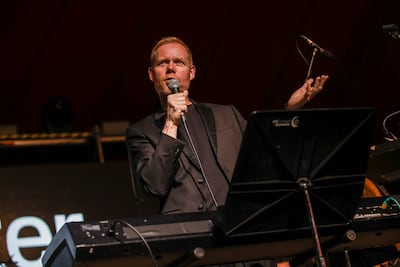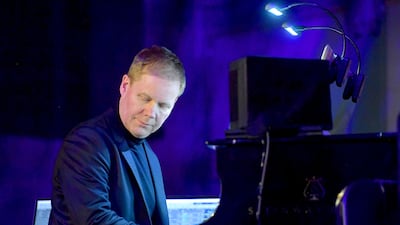Over the last 20 years of film and television, Max Richter's On the Nature of Daylight has become one of the most potent emotional weapons in Hollywood's musical arsenal. The song, from his 2004 album The Blue Notebooks, has now been used more than 20 times in pivotal moments of popular media.
In Martin Scorsese's Shutter Island, Richter's song played as Leonardo DiCaprio's character rushed through memories of his late wife. In Denis Villeneuve's Arrival, it soundtracked the opening and closing scenes – so pivotal to the movie that the actual score by Johann Johannsson was deemed ineligible for Oscar consideration. In HBO's The Last of Us, it played during the death sequence of the award-winning third episode.
In one sense, it is proof positive that the German-born British classical composer is approaching the stature of those greats, such as Vivaldi, whose work he reinterprets. How many times has Summer III from Vivaldi's Four Seasons been used in film, for example? How many layers of meaning has it accrued in snowball effect as it tumbles down the annals of history?
With all those layers now added, it is easy to forget what Richter intended with The Blue Notebooks. On Wednesday night, he reminded a sold-out, enraptured crowd at Dubai Opera as he performed selections from the album to celebrate its anniversary. In fact, he said on stage, it was an old-fashioned protest album, written in the lead-up to the Iraq War, as he struggled to process that the violence of the real world was becoming uncomfortably close to the dark levels of fiction that warned us against such a future.
While he never said it explicitly, it is hard not to speculate that Gaza was on his mind as he performed the album in Dubai. Richter is a deeply moral composer, after all. In 2021, he wrote the score to the documentary Eleven Days in May, directed by Gaza filmmaker Mohammed Sawwaf along with Michael Winterbottom and spotlighting the 60 children who died as the result of Israel's bombing campaign of that year. The intended themes and commentary of The Blue Notebooks align just as powerfully with the Israel-Gaza war as they do the second Gulf War.

In addition to The Blue Notebooks, Richter performed the entirety of his latest album, In a Landscape, released in September. That, too, is an album of deeply moral concerns. But instead of evoking the words of Franz Kafka as the former does, In a Landscape uses snippets of field recordings from Richter's everyday life. Still, the works have much in common – not just in sound, but in theme. It “shares many of that album's concerns," he wrote in the liner notes. Both works, then, are processing pain and violence – the cruelty of the world, the failing of humanity.
But they are both cathartic, building on simple patterns that grow as beautiful elements are layered on top of the basic melody, performed live by Richter on piano and synthesisers with an accompanying five-piece orchestra. At a time when we all need catharsis, is this what inspired him to embark on his first world tour, which included Wednesday's stop in Dubai?
Whether conscious or not, Richter's music brought catharsis to the Dubai audience, just days before Ramadan. The music was as rich as ever – and stirringly performed. I was as moved as I have ever been hearing live music.
It has been nearly nine years since Dubai Opera opened in August 2016. I'm thankful that the UAE has a venue that can attract shows of this kind, and do them justice, in front of perhaps the most multicultural audience Richter will attract on his tour. This was triumph for all parties involved.


